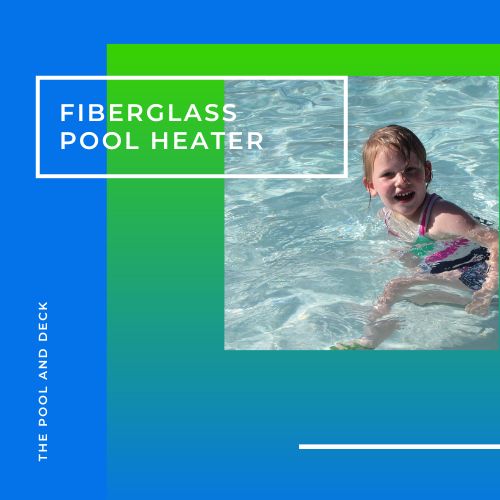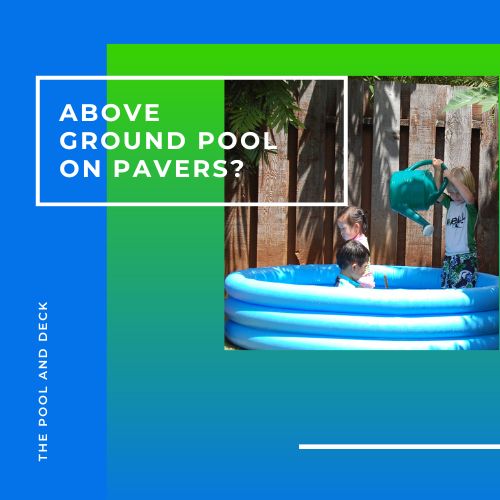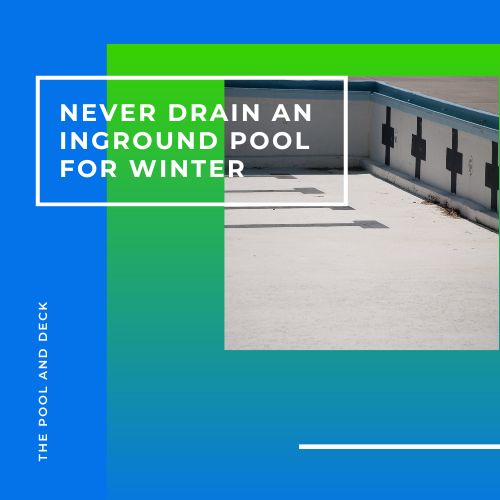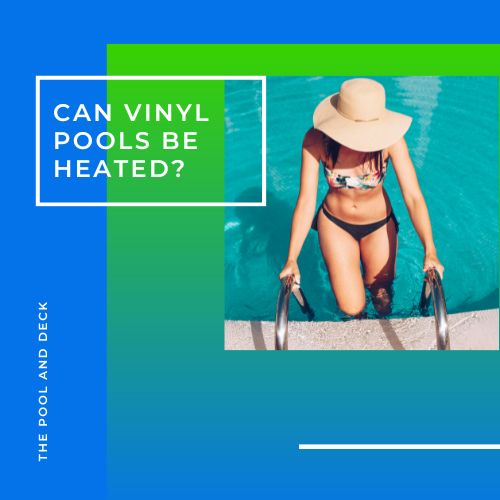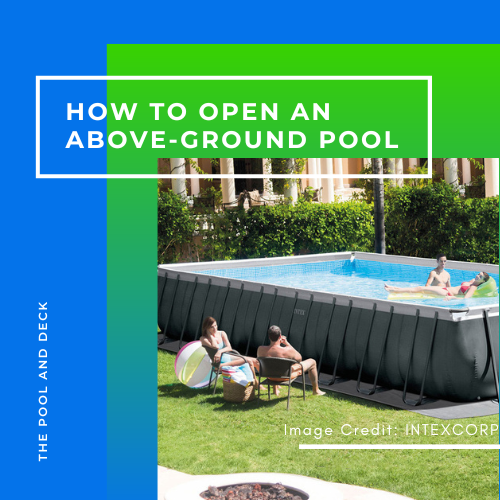How Long Do Above Ground Pools Last? (Best Ways To Increase Life!)
As an Amazon Associate, I earn from qualifying purchases.
Table of Contents
How Long Do Above Ground Pools Last?
So the kids have finally convinced you to install an above ground pool in your backyard this summer. Truth be told, you are quite happy about this decision too and are looking forward to a fun-filled summer. The above ground pool will set you back a few thousand dollars. Of course you want to know how long do above ground pools last?
While there is no guaranteed lifespan, the table below will give you a fair idea.
| Above Ground Pool Type | Expected Life |
| Inflatable Pools | 1 – 5 years |
| Resin Framed Pools | 5 – 10 years |
| Steel Framed Pools | 10 – 20 years |
| Hybrid Pools | 20 – 30 years |
| Semi In-Ground Pools | Lifetime |
The life of an above ground pool not only depends on the type of pool but also on the brand you buy. The better known brands do not cut corners and you can be assured of high-quality.
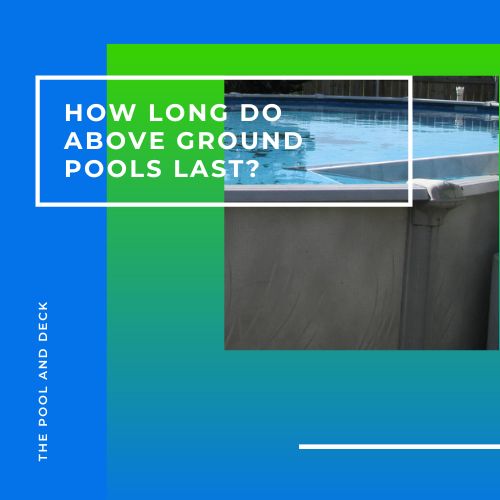
Like any investment, an above ground pool will also deteriorate with time. However, you can make your above ground pool last longer if you regularly follow a few maintenance tips.
In this post I shall explain about the 5 different types of above ground pools, why they deteriorate with time and the best ways to make your above ground pool last longer.
Types of Above Ground Pools
There are five basic types of above ground pools. Each comes at a different price point and has different longevity.
Inflatable Pools
Inflatable Pools are a great way to give young kids the time of their life. They are super easy to assemble and set up. Inflatable pools cost very little when compared to standard above ground pools.
Inflatable pools can easily be set up in a porch or a garage under the shade. Everyone can have fun splashing around even on a super hot day.
Of course, at this price point you should not expect your inflatable pool to last very long. Depending on the quality they may last anywhere between 1 – 5 years.
Resin Framed Above Ground Pool
Resin is an alternative to steel. Resin pools are more expensive but they are less likely to be adversely affected by corrosion or UV radiation. The main advantage of a resin framed above ground pool is that they are very simple and quick to install. You can do it yourself with some help from your family members.
On the flip side they have a much shorter life. Even a decent quality resin framed above ground pool may last only 5 – 10 years.
Steel Framed Above Ground Pool
Steel framed above ground pools are quite popular as they are reasonably priced and have a fairly long life. Steel framed pools have been around for sometime, so the manufacturers have made significant improvements in design & material used.
Steel, along with concrete, is the workhorse of the construction industry. The strength to weight ratio of steel is quite high. Steel is malleable and can easily be formed into any desired shape. The individual pieces can be attached to one another using screws or welds.
There is a belief that steel rusts easily. This is not true for all steel. Steel is an alloy which is primarily iron. However, it contains other elements such as carbon, nickel, cadmium, etc. These elements impart special properties to steel.
For example, stainless steel does not rust at all. Steel can also be made rust proof by galvanizing it. Galvanizing is a process in which steel is coated with a layer of zinc. Epoxy or Polyurethane (PU) coatings is another way to make steel corrosion resistant.
A steel framed above ground pool can last between 10 to 20 years, provided it is good quality and maintained well.
Hybrid Above Ground Pool
Resin has better weather resistance. Steel has higher structural strength. The Hybrid above ground pool models incorporate the best of both.
An Hybrid pool uses resin for the exposed parts such as top rails, uprights and top caps. The pool wall is made from solid steel.
A Hybrid above ground pool can last as long as 30 years with proper maintenance and occasional change of pool liners.
Semi In-ground Pools
Semi In-ground Pools combine the ease of installation of an above ground pool with the stability and longevity of an in-ground pool. They are also a great fit, if your backyard is uneven or on a slope.
Semi In-ground Pools can be assembled with relative ease. The best part is that they usually come with a lifetime warranty, just like an in-ground pool.
What Shortens Above Ground Pool Life?
Compared to an inground pool, an above ground pool has a shorter life. There are a few reasons for this.
Uneven Water Level
An above ground pool is, more often than not, installed in a hurry just before the pool season. Moreover, it can be a DIY project too.
Proper installation of an above ground pool requires a flat level and stable base. In case the base preparation or the materials used for the base are not up to the mark, then the above ground pool may not be perfectly level.
Once filled with water, the water depth could be higher at one end. The water pressure exerted on the pool lining and structure will be higher at this end. The pressure difference can cause structural damage and can even result in the collapse of your above ground pool.
Even an above ground pool that was perfectly level at the time of installation can become uneven due to ground movement. The grade below the base can subside due to soil erosion, subgrade water movement, freeze-thaw cycles etc.
Pool Liner Failure
The above ground pool is primarily a structural shell which houses a pool liner. Pool water is contained within this pool liner. Typically the life of a pool liner is only a few years. So it will need to be replaced whenever it fails.
Pool liner will deteriorate, over time due to UV radiation from sunlight and reaction with pool chemicals. The vinyl pool liner becomes brittle and can crack. Pool liner can also get damaged by improper pool cleaning or usage.
If the pool liner rips, there will be water leakage and the rip will keep getting bigger. You will have no choice, but to replace the pool liner.
Corrosion
Above ground pools that use steel structures, as supports, can rust. The pool is always exposed to the elements. Pool water is also mildly acidic due to chlorine.
Substandard quality steel is more likely to rust. Scratches on steel with a protective coating will expose the bare metal which can rust. Rusting usually begins on the scratch surface but progresses inwards, even below the protective coating layer.
You should clean up the rusted area and apply corrosion resistant coating, such as Rust-oleum Rust Reformer, as soon as possible.
How To Make Above Ground Pool Last Longer?
Having invested a few thousand dollars in an above ground pool, it makes sense to take a few small steps to get the maximum possible life from your pool.
Regular Maintenance
As with any equipment, regular maintenance goes a long way in increasing the life of your above ground pool. To enjoy your pool longer, you must make sure that it is sanitized and kept clean at all times.
Pool chemicals are critical to keeping the pool water safe for swimming. Chlorine forms a mild hypochlorous acid to sanitize & disinfect. This prevents bacterial, algae and mold growth.
Low pH or alkalinity can stretch the liner and result in wrinkles. Low calcium hardness makes the liner hard & brittle. So test regularly and keep them in range.
Pump & Filter are the heart & lungs of your pool. As long as they are working they will keep the pool water clean & sanitized. They also ensure that floating debris such as algae and dry leaves are removed from the pool regularly.
Get a good pool cover for winter when the pool will not be in use. This will prevent broken branches or other debris from getting in and damaging the pool liner.
Repair small rips & cuts in the pool liner as soon as possible. The longer you wait the more time the leaking water has to damage the pool structure and the concrete pad below.
Backwashing
The pump is necessary to circulate the pool water through the filter. Filter can use sand DE or a cartridge to trap debris and dirt. The filtration medium itself must be cleaned regularly for proper filtration.
Sand & DE filters can be backwashed to clear out the trapped dirt. Make sure to backwash your filter at least once a week. Cartridge filters cannot be back washed. However, you can remove the cartridge and clean it with the garden hose.
Keep the Water Circulating
Circulation is critical to maintaining clean and chemically balanced pool water. Without proper circulation the pool chemicals that you put in will be concentrated in some parts and nonexistent in other parts. This is detrimental to water quality and pool life.
Circulation is especially important when you shock the pool. Pool shock is highly concentrated chlorine and can damage the pool liner. Always pre dissolve the pool shock in a bucket of water and run the pump on recirculate mode. Shock only when required!
Brushing the pool often will help dislodge and remove dirt and algae from hard to reach corners. Running the pump in circulation or regular mode will help.
Take Good Care of the Pool Liner
As mentioned before it is the pool liner which holds the water in the above ground pool. Even if your pool is structurally sound you may need to replace the pool liner if it gets damaged.
Following will extend the life of the pool liner:
- Keep pool water chemistry within prescribed range, especially chlorine, pH and alkalinity levels
- Use a pool liner with the best fit to your above ground pool
- Repair small cuts & rips as soon as possible
- Use a good quality pool cover for protection
- Protect the pool liner from sharp objects (dogs claws, broken beer bottle)
Thank you very much for reading the post. I do hope you found it informative and helpful.

